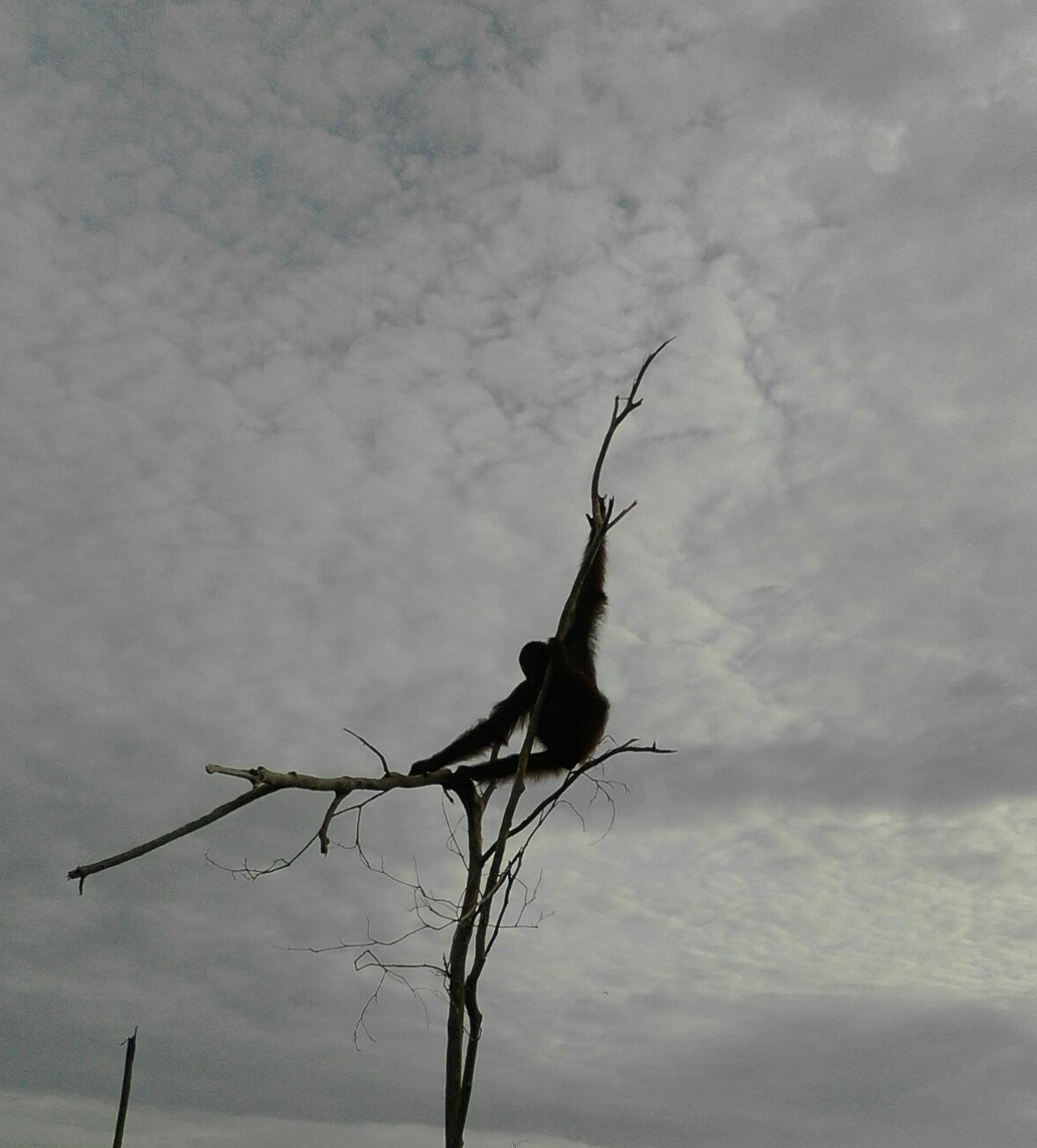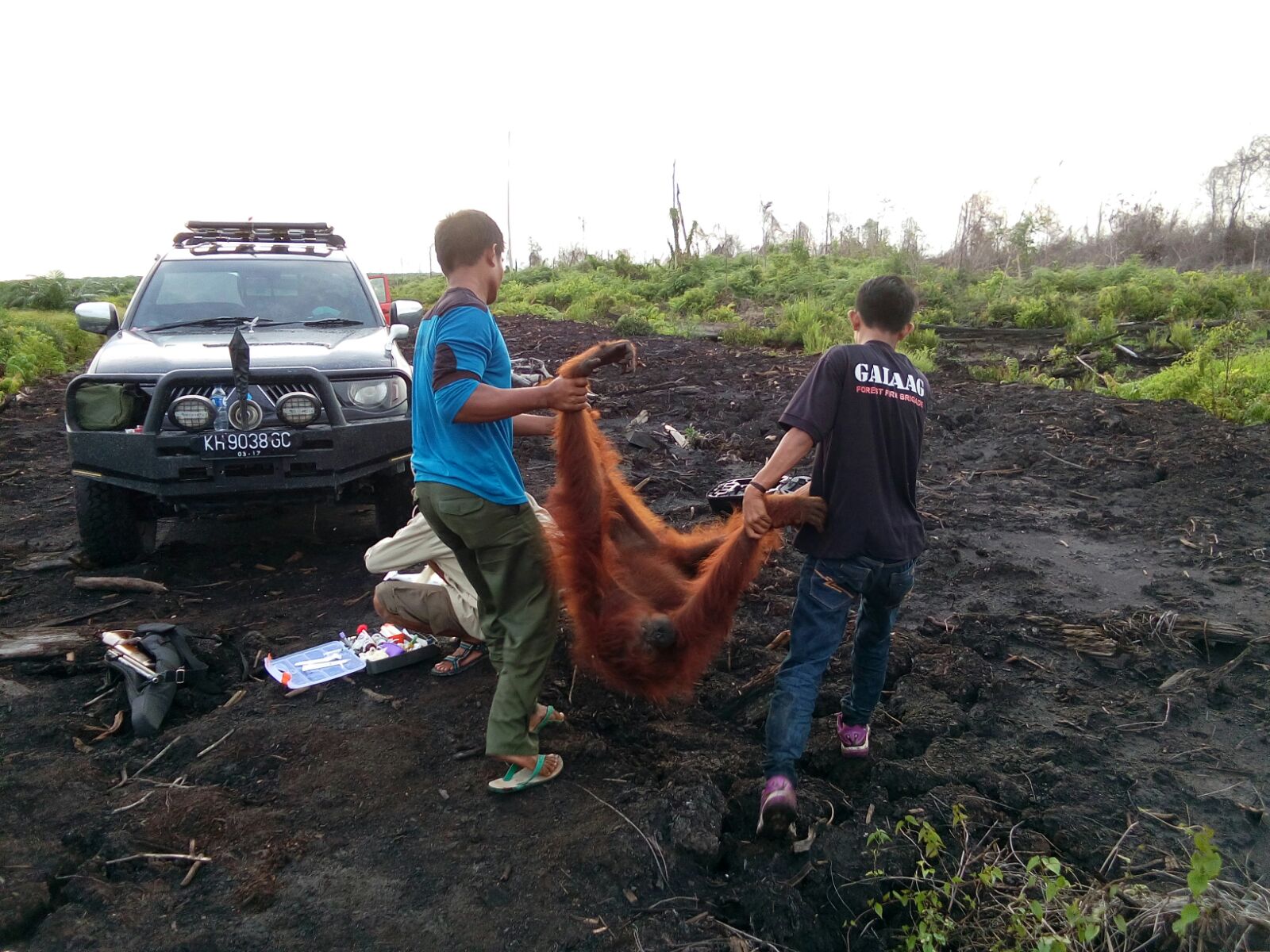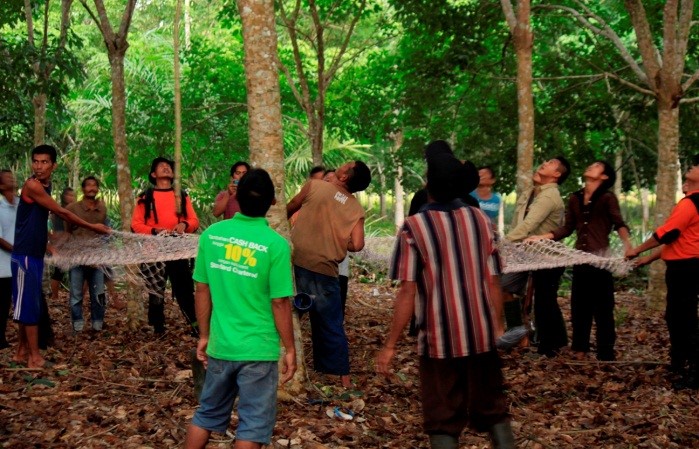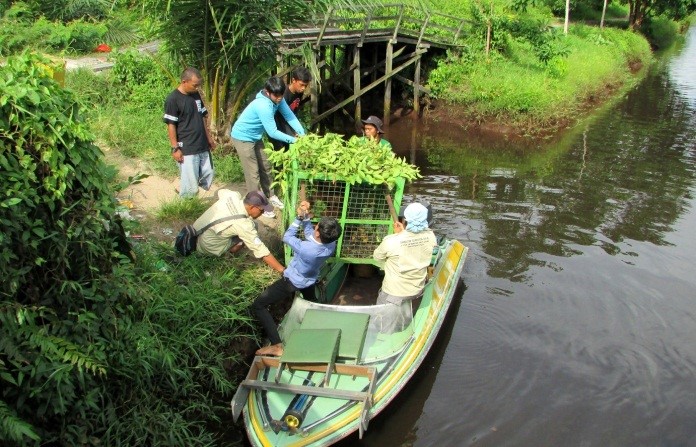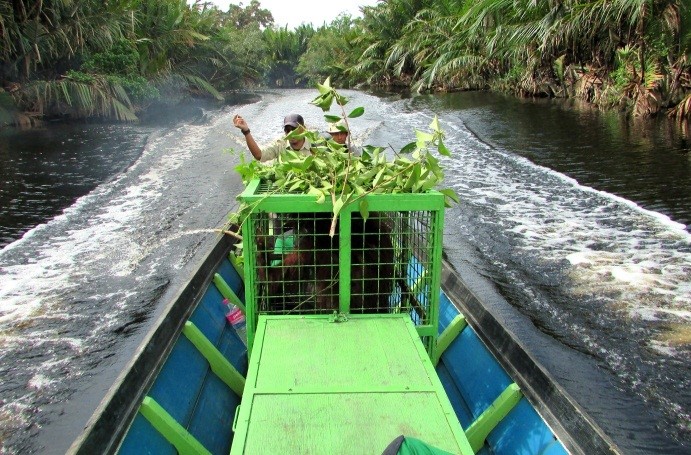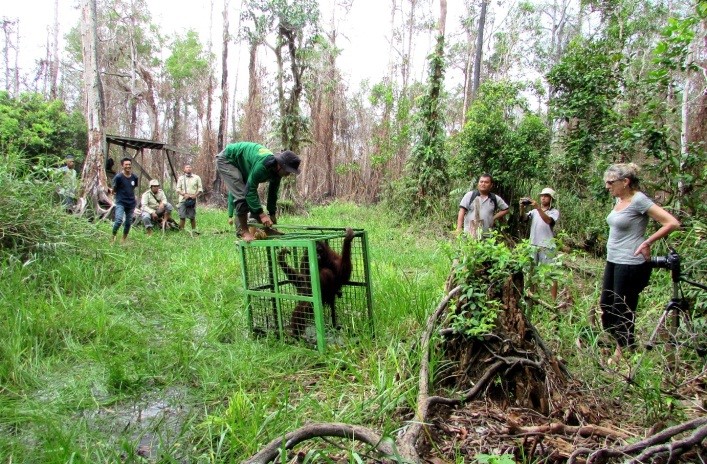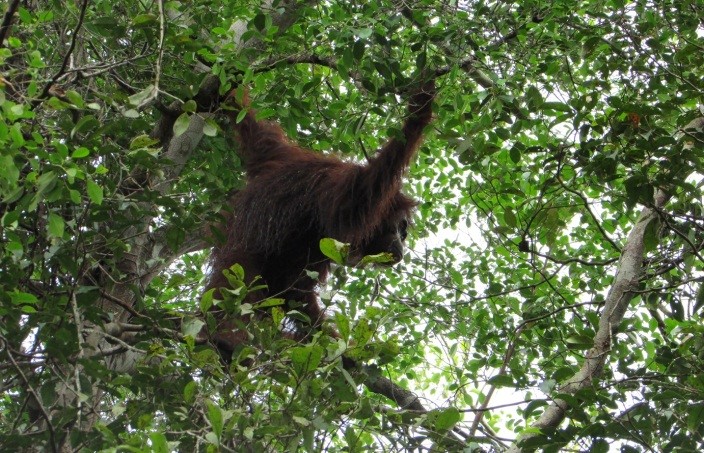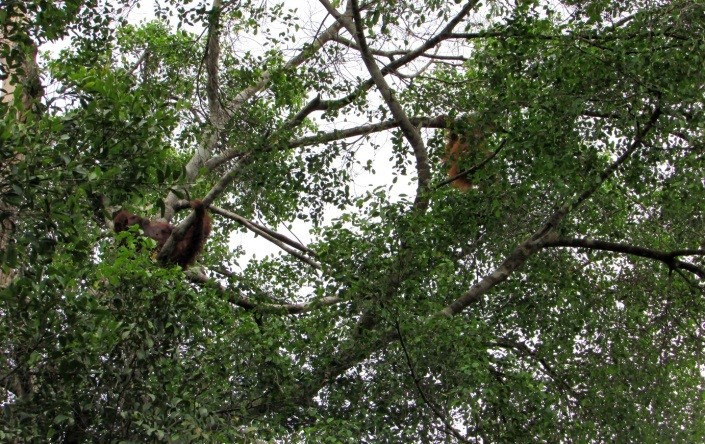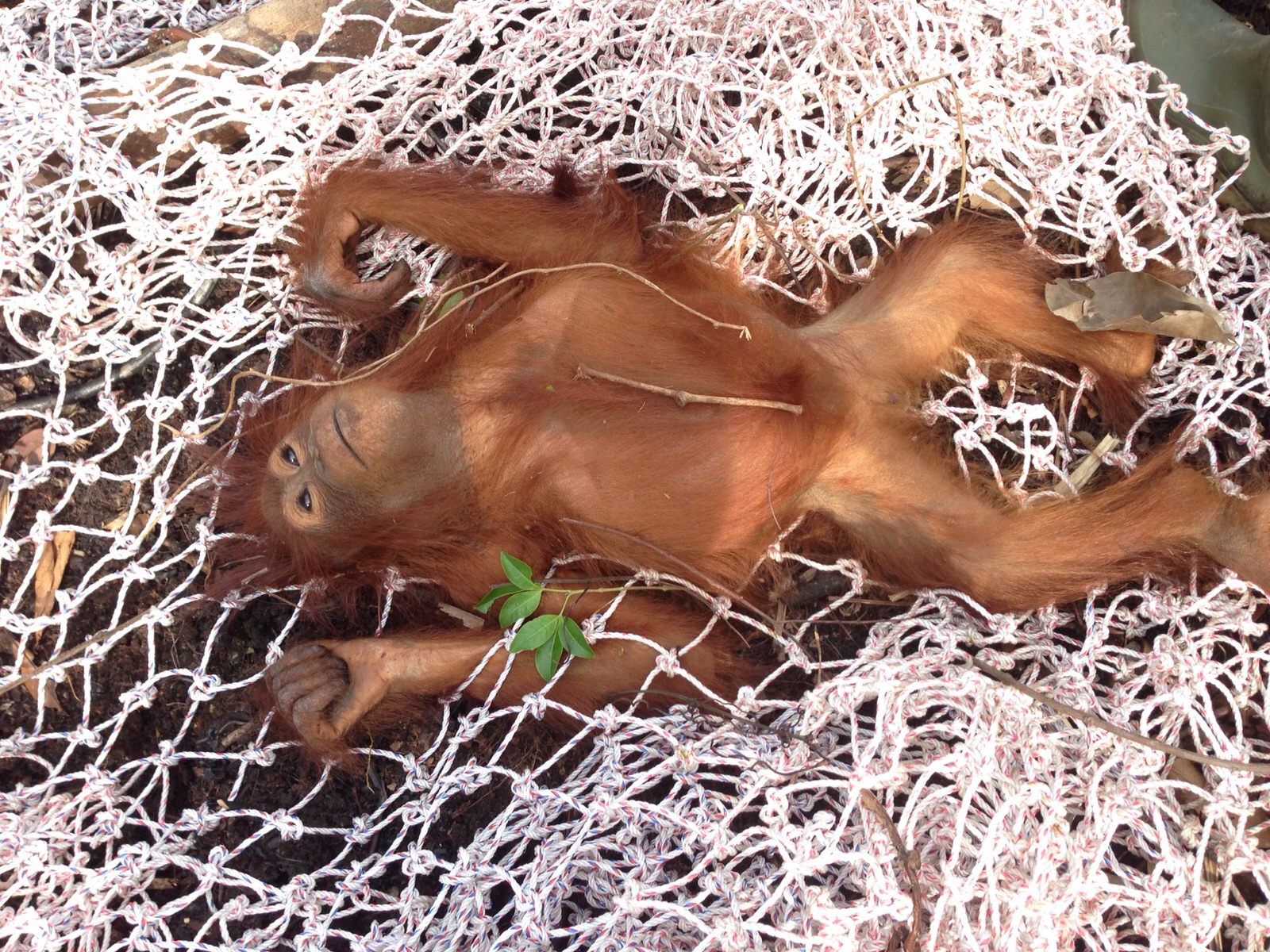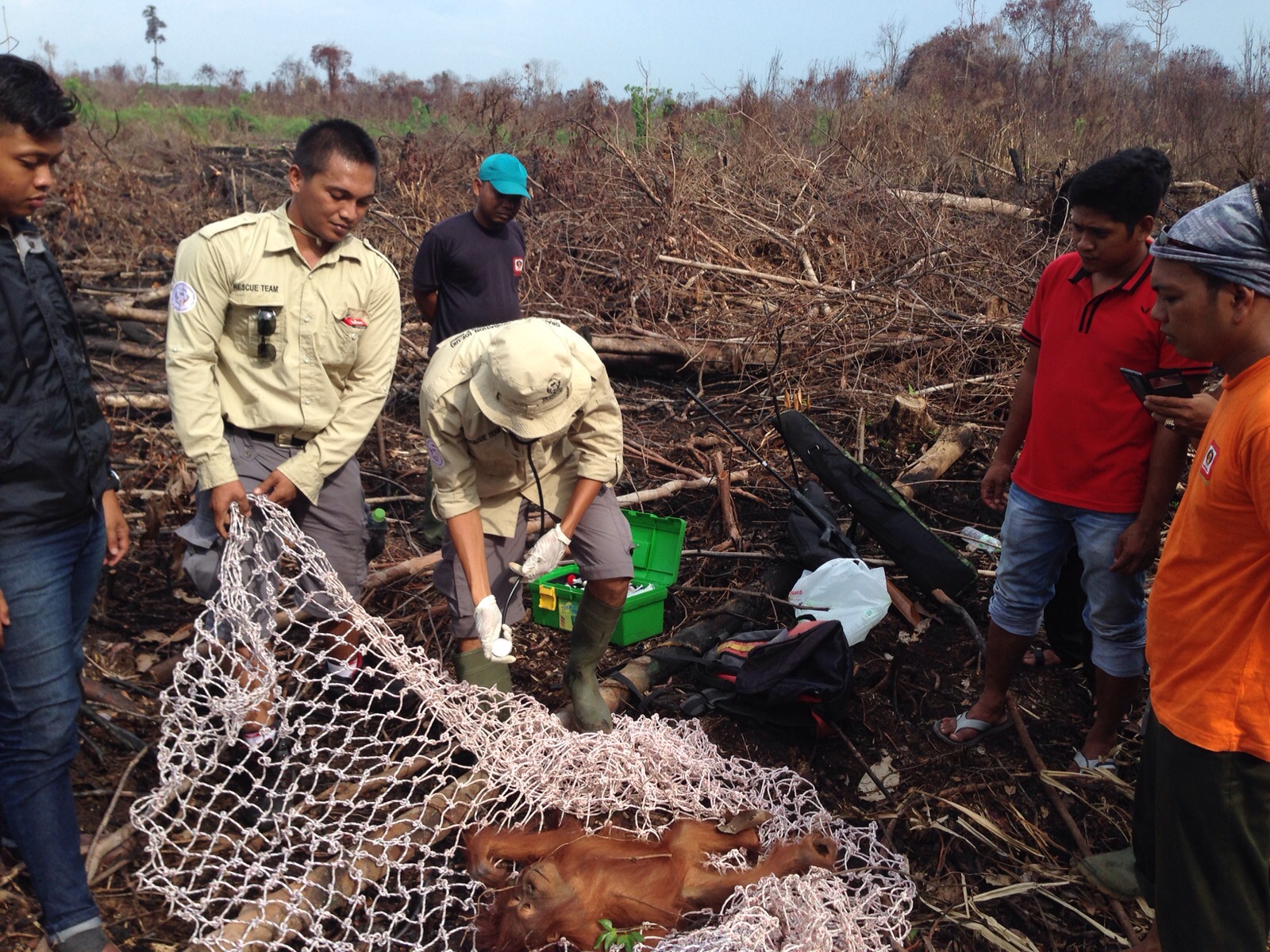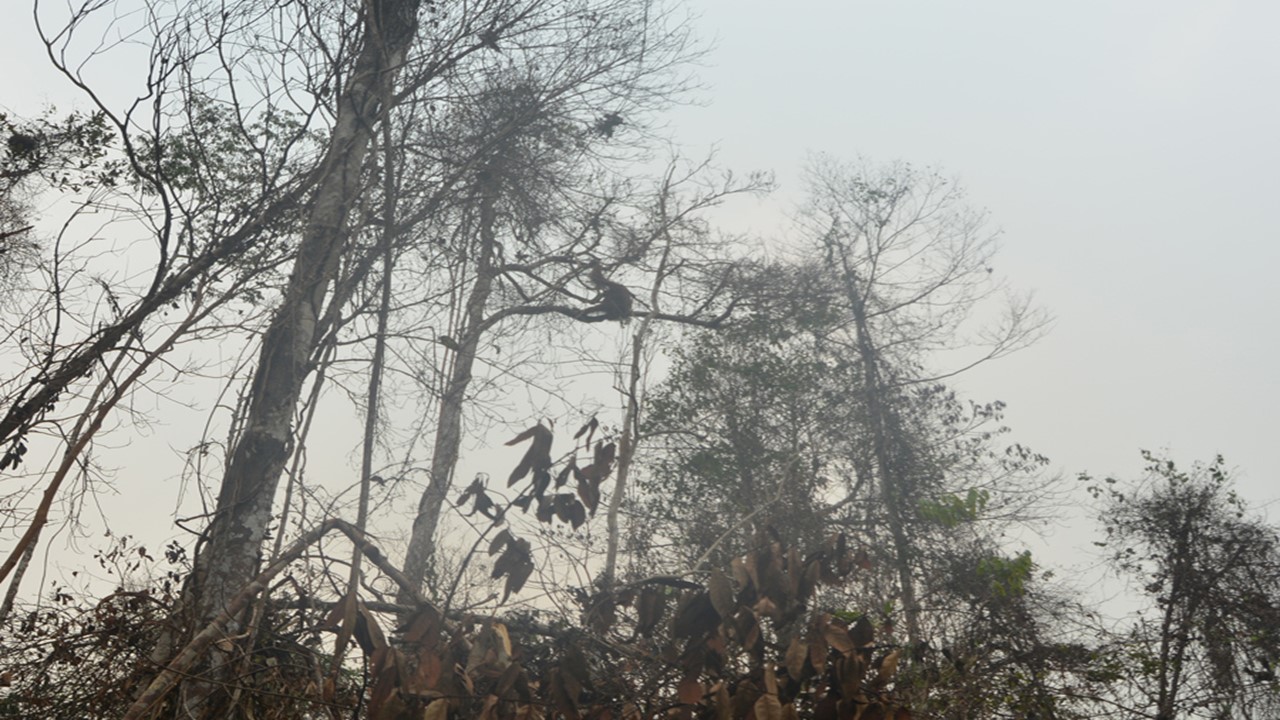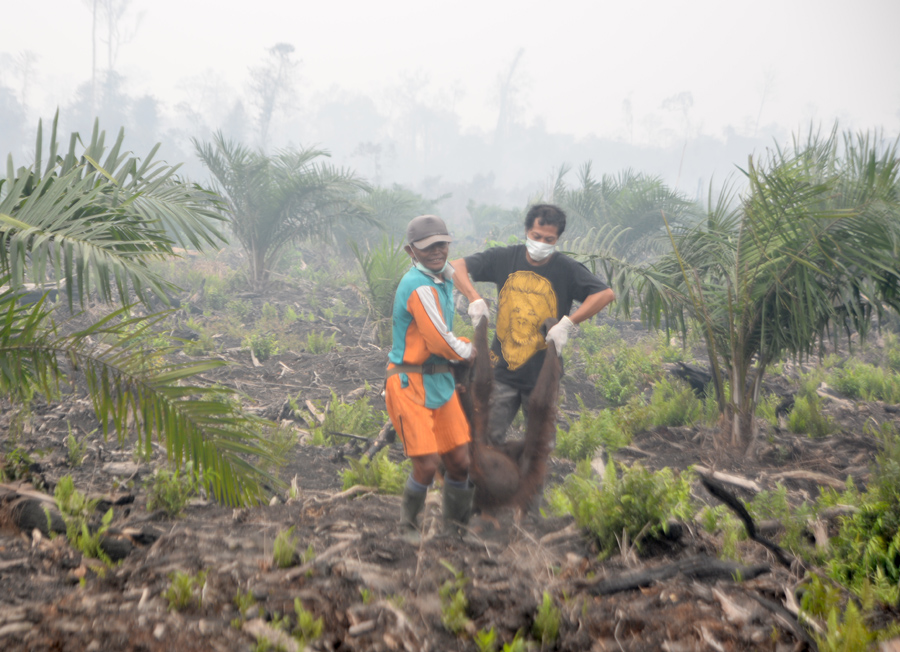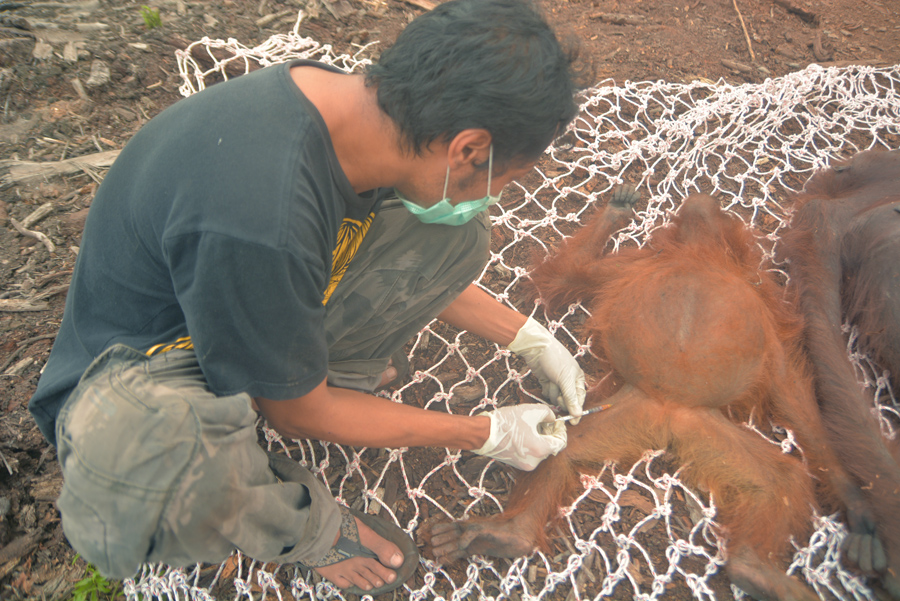Last month, a staff member from the BKSDA informed us that someone had come to their office wanting to surrender an orangutan. The man was a local person from the town of Sampit, whose cousin had been keeping an orangutan in his home with the intent to sell him.
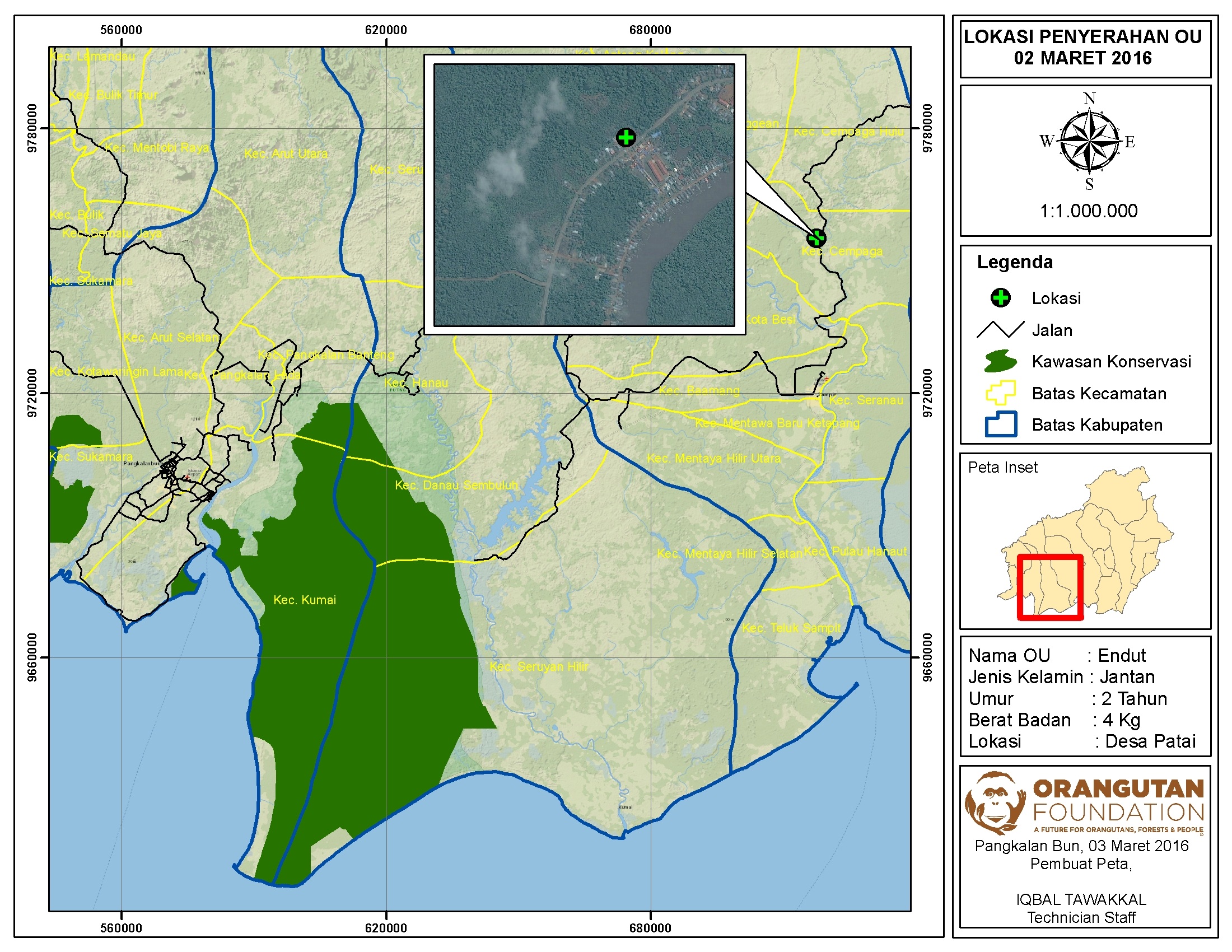
When the BKSDA went to the man’s house, they found the infant orangutan in a small wire chicken cage, where he had been living on a generous diet of milk and bananas for several weeks. The man claimed that he had found the young ape in his rubber plant garden a month prior when he heard it crying, seemingly abandoned by his mother.
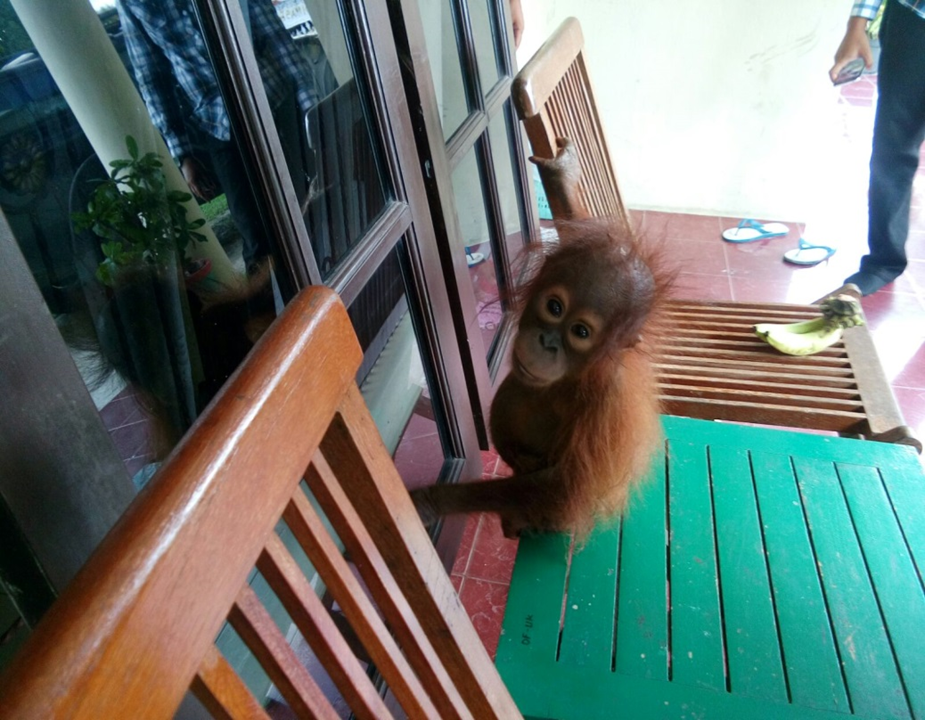
Fortunately the BKSDA has now passed the infant orangutan on to the Orangutan Foundation, where he has been given proper health checks and will soon enter our soft-release programme. The orangutan weighed 4kg, and has been named Endut (an Indonesian term for someone with a large stomach) because of his big belly! Endut has been brought to Camp Buluh in the Lamandau Wildlife Reserve, and we are confident with the knowledge that in time he will be healthy enough to live independently in the forest.
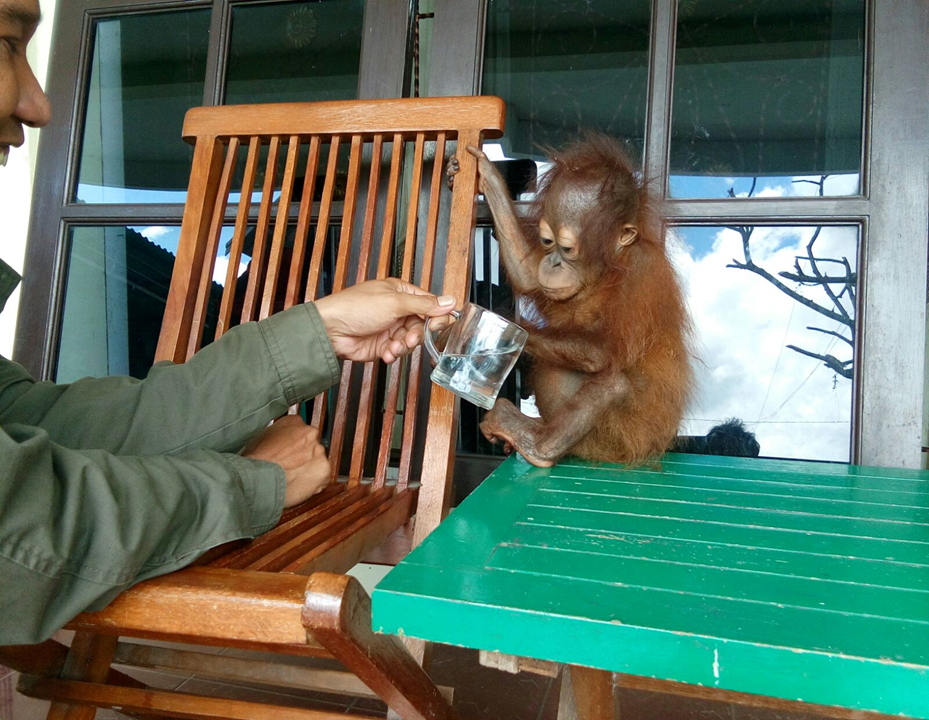
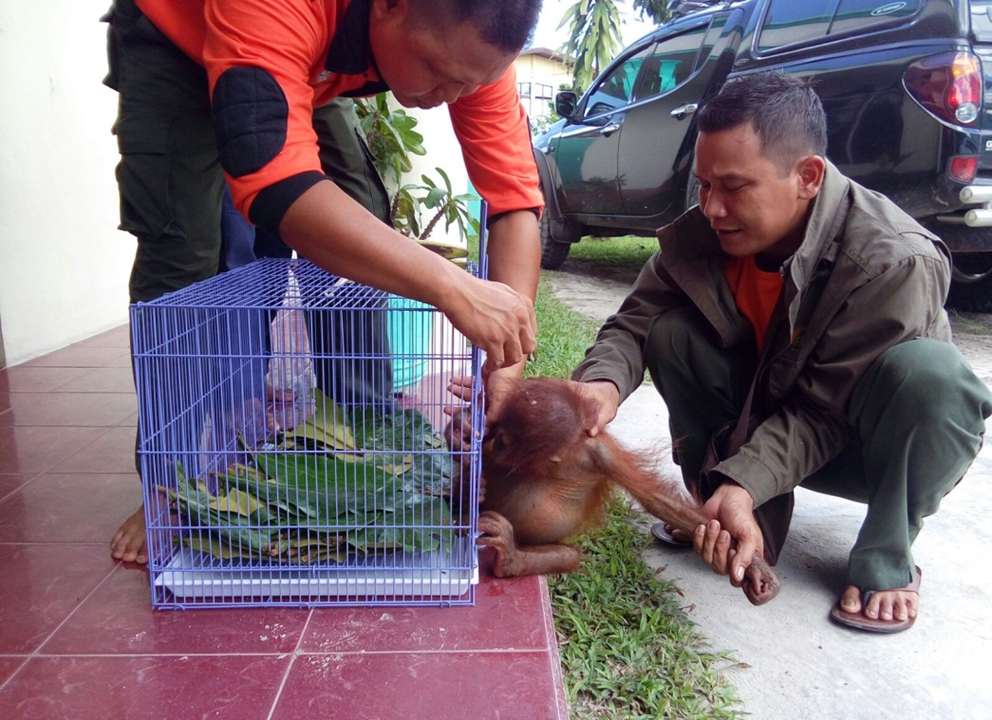
We are thrilled that Endut is now in the safety of the reserve, but sadly this story points to a larger problem. Endut is the third infant orangutan to be surrendered to the Orangutan Foundation by local villagers this year alone*. It is worrying that in spite of all the outreach and education done in Central Kalimantan, people today are still enamoured with the idea of having an orangutan as a pet. This belief is unfounded and unfair to the wild animal in question - not to mention highly illegal in Indonesia.
On top of this, one question continues to plague our minds: why are these infants being abandoned in the first place? Has their mother ran away or has she been harmed? When an infant is reported to the Foundation, we may never find out what happened to their mothers. Yet with three orphaned infants found in the same area of Central Kalimantan within the space of two months, this situation is very unsettling.
We hope that our supporters will help us to raise awareness for the importance of keeping orangutans in the wild.
*As this blog was being written, another infant orangutan was rescued by the Orangutan Foundation from a local village.


